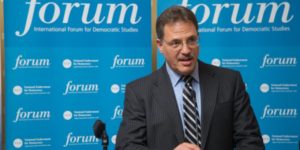In 1978, the UC Berkeley political scientist Jyotirindra Das Gupta gave the term “A Season of Caesars” to the wave of authoritarian emergency regimes that were sprouting up in Asia (including, briefly, in India), Stanford University’s Larry Diamond observes. The current season risks being longer and more global, as it is starting to buffet liberal democracy even in the West. Moreover, it makes no pretense of being temporary or even “developmental”, he writes for The American Interest.
 Above all, what autocrats of this current season share are two things as old as politics itself: a lust for power as an end in itself, and an instinct for demagoguery as means to acquire and retain it. The former impels them to eviscerate civic and institutional checks on their power once in office. The latter propels them toward populism as an electoral and governing strategy, adds Diamond, the founding coeditor of the Journal of Democracy and the co-chair of the Research Council of the International Forum for Democratic Studies of the National Endowment for Democracy (NED):
Above all, what autocrats of this current season share are two things as old as politics itself: a lust for power as an end in itself, and an instinct for demagoguery as means to acquire and retain it. The former impels them to eviscerate civic and institutional checks on their power once in office. The latter propels them toward populism as an electoral and governing strategy, adds Diamond, the founding coeditor of the Journal of Democracy and the co-chair of the Research Council of the International Forum for Democratic Studies of the National Endowment for Democracy (NED):
It is important to bear in mind that most people who back illiberal populist campaigns do so for instrumental reasons—they want different government policies and programs, and in the face of polarizing political alternatives, they are willing to tolerate or excuse creeping authoritarianism to achieve them. Defenders of democracy can win over a portion of this constituency by exposing the fraudulent elements of the populist agenda and offering more appealing programs that do not compromise core liberal principles. But to do so, they must not allow illiberal populists to hijack traditional unifying values—which express pride in and devotion to the nation, family, and community.







